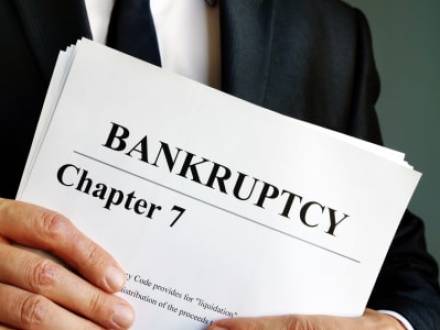Is Chapter 7 Bankruptcy a Good Option for Small Business Owners?
 Small business owners are known to sometimes face significant financial challenges. Growing a profitable business can be an uphill battle, and some entrepreneurs find themselves overwhelmed with legal obligations. In more extreme situations, they might be drowning in debt and looking for a way out. For some such business owners, that way out is called Chapter 7 bankruptcy.
Small business owners are known to sometimes face significant financial challenges. Growing a profitable business can be an uphill battle, and some entrepreneurs find themselves overwhelmed with legal obligations. In more extreme situations, they might be drowning in debt and looking for a way out. For some such business owners, that way out is called Chapter 7 bankruptcy.
This article will discuss what Chapter 7 bankruptcy is and how it works for small business owners. If you are considering declaring bankruptcy, speak with a Texas bankruptcy attorney about your options.
What Is Chapter 7 Bankruptcy?
In Chapter 7 bankruptcy, the debtor’s assets are liquidated and then used to pay his or her creditors. The court appoints a trustee to oversee the process of converting the debtor’s assets to cash — usually by selling them — and then paying off claims by creditors.
The debtor is allowed to keep certain assets that are protected by law. These cannot be sold to discharge the debtor’s obligations and are referred to as "exempt" assets.
Once a Chapter 7 case is closed, most of the person’s debts are erased. Certain debts, however, like taxes owed or past-due child support, are not discharged.
How Does Chapter 7 Bankruptcy Work for Business Owners?
Declaring bankruptcy can have different outcomes depending on how a business is set up. If it is a sole proprietorship — which means the business owner and the business are considered the same entity — then filing Chapter 7 bankruptcy can discharge the debts of both, but it also means that the owner’s personal nonexempt property may be liquidated.
However, if the business was formed as an LLC or a corporation, then it is a separate entity from the owner and would file for bankruptcy to discharge the company’s debts only.
In either case, a company that files for Chapter 7 bankruptcy is liquidated and ceases to remain in business.
When Is Chapter 7 Bankruptcy a Good Option for Small Business Owners?
Given the above, Chapter 7 bankruptcy may be a good choice for small business owners when:
- The business is not viable: If the business cannot earn enough revenue to pay off its debts, then it may be worth liquidating it through Chapter 7 to discharge them.
- The owner has deep personal debt: If a sole proprietor has significant personal debts and can discharge them by liquidating the company, he or she might consider filing a Chapter 7 petition.
- The owner wants to shut down the business: If a business is failing and the owner wants to close it, filing Chapter 7 can be a way to do so while also discharging its financial obligations.
Contact a San Antonio, TX Chapter 7 Bankruptcy Attorney
Filing a Chapter 7 bankruptcy petition can be a "fresh start" for small business owners, but it is not the only solution. Find out what would be the best option for you by contacting the Law Offices of Chance M. McGhee. Attorney Chance McGhee has extensive experience in bankruptcy law and serves as director of the San Antonio Bankruptcy Bar Association. Schedule a free consultation with a Boerne, TX Chapter 7 bankruptcy lawyer by calling 210-342-3400 today.






